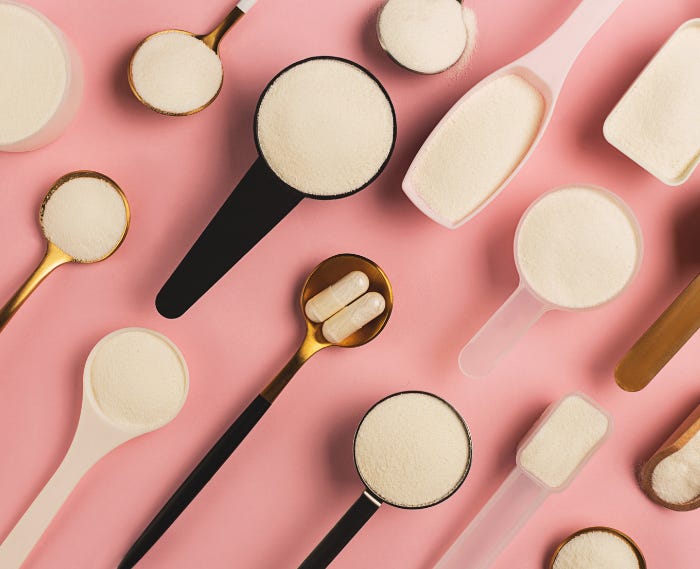This article was inspired by a question from a paid subscriber. One of the perks of being a paid subscriber is being able to shape the content I post. So feel free to comment, ask questions, and suggest ideas for future topics. I love to hear from you! Thanks for being here and for supporting this work. If you are enjoying this newsletter, tell a friend!
I tend to lean away from powders and pills in favor of real food, but collagen supplements keep popping up on my radar as something potentially worthwhile. I’m not swayed by marketers’ hyped promises of better skin, nails, joint health and more, but I have noticed several well-respected health professionals recommending collagen, and a subscriber here recently asked me about them. Do these supplements really work? Are they worth the money? Are there any downsides to using them? I dug into the research to find out.
What is Collagen?
Collagen is the main structural protein of connective tissue, found in the bone, skin, cartilage and tendons of animals and humans. When collagen is heated in water, as when you make a soup stock, it results in gelatin, which explains that desirable jelly-like texture you get after refrigerating a good bone broth. And, yes, that is where those little gelatin packets used for desserts and other dishes come from.
We don’t need to eat collagen per se because our bodies produce it from the proteins, vitamins, and minerals we eat. That’s why the first line of defense for optimal collagen production is an overall healthy diet, including adequate protein, vitamins and minerals. However, as we age, our bodies’ collagen production becomes less efficient and the tissues that depend on it, like our skin and joints, don’t get repaired the way they used to, which partly explains why our skin starts to sag and we have more aches and pains as the years tick by. This effects both men and women, but women notice it acutely once they have hit menopause. According to the American Academy of Dermatology, women’s skin loses about 30% of its collagen during the first 5 years of menopause. Lucky us.
Do Collagen Supplements Work?
That’s where the supplements may help. Manufacturers have found a way to apply enzymes to gelatin to create protein chains called collagen hydrolysates. These small collagen chains, known as peptides, may be absorbed intact by the body to be used directly in the tissues so they may bypass our collagen-making systems.
It turns out, there is a lot of promising research pointing to upsides of taking these collagen supplements. The data we have now consistently points to real benefits for skin elasticity and hydration, and help with joint pain. And the supplements appear to be perfectly safe.
That said, don’t buy into the miracle-cure hype you read on-line. Most of the studies done so far are small (involving less than 100 people), many are industry sponsored, most are relatively short-term (6 months or less), and the different studies use varying doses. More independent, long-term research needs to be done to reach firm conclusions about collagen’s benefits and how much is optimal to take. Also, since the observed effects have mostly involved short-term studies, we don’t know if they are anything more than fleeting and whether any negative side effects develop over time. But given what we know now, I’d say if you want to improve your skin appearance or joint health they might just be worth a try.
Some Important Considerations
Keep reading with a 7-day free trial
Subscribe to Ellie's Real Good Food to keep reading this post and get 7 days of free access to the full post archives.




